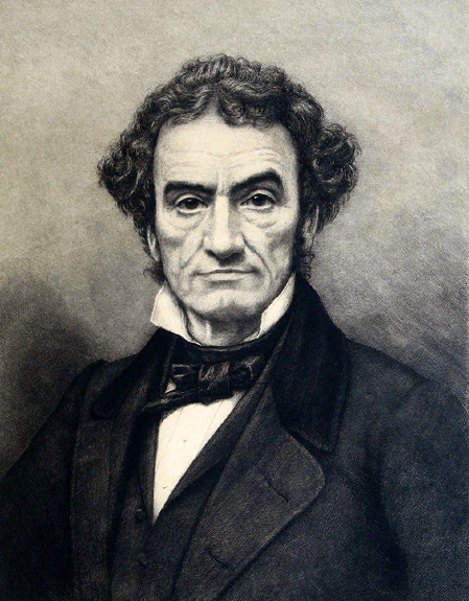Get Today in Masonic History into your Inbox. Sign up today for one of our email lists!
Need an article for your Trestleboard/Newsletter see our Use Policy
Rufus Choate is Born

Today in Masonic History Rufus Choate is born in 1799.
Rufus Choate was an American politician and lawyer.
Choate was born on October 1st, 1799 in Ipswich, Massachusetts. At the age of six he was able to memorize parts of the Bible and The Pilgrims Progress, a 17th century Christian allegory. He attended Dartmouth College where he graduated valedictorian in 1819. After graduation he stayed at Dartmouth for a year acting as a tutor. He went on to read law in Washington D.C. under the Attorney General of the United States. It wasn't until 1845 when he received a Bachelor of Laws degree from Harvard University.
In 1823, Choate passed the bar in Massachusetts and began practicing law there. In 1825 he was elected to the Massachusetts House of Representatives serving until 1826. In 1827 he was elected to the Massachusetts State Senate, serving only one year.
In 1828, Choate moved to Salem, Massachusetts where he handled several prominent lawsuits bringing him into the public eye. In 1830 he was elected to the United States House of Representatives, where he served two terms.
In 1834, before the end of this second term, Choate resigned from Congress to open a legal practice in Boston. He worked in the legal profession for the next seven years before deciding to run for public office again. This time he was elected to the United States Senate, succeeding Daniel Webster (who succeeded Choate). In the Senate, he spoke on the tariff, the Oregon boundary, in favor of the Fiscal Bank Act, and in opposition to the annexation of Texas.
After leaving the Senate in 1845, Choate went back to his legal practice. In 1846, he successfully defended his client Albert Tirrell in his murder trial. Tirrell was accused of murdering his wife by slitting her throat. Choate used for the first time in American judicial history the "sleepwalking defense." Choate successfully argued his client murdered his wife while sleepwalking and was not responsible for his crime. From 1853 to 1854 he served as Attorney General of Massachusetts.
As Choate's health began to fail he set out for Europe for a rest. He made it only to Halifax, Nova Scotia where he passed away on July 13th, 1859.
Choate was a member of Jordan Lodge in Peabody, Massachusetts.
This article provided by Brother Eric C. Steele.

